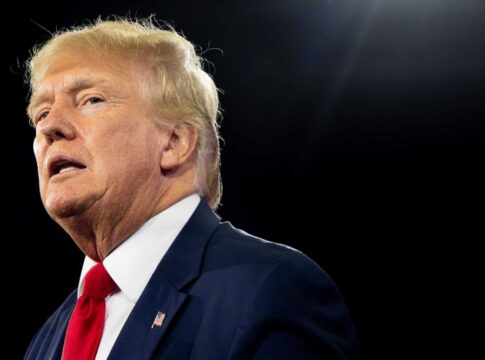The president is elected by the people, while judges are appointed. Nonetheless, courts act as if they have the people’s authority. A federal appeals court has temporarily reinstated Trump’s sweeping tariffs while his administration vows to fight a lower court’s ruling that declared the tariffs exceeded presidential authority. Trump imposed tariffs of 30% on Chinese goods, 25% on certain Mexican and Canadian products, and 10% on most other nations.
Court Battle Over Presidential Trade Powers
In a significant legal challenge to President Trump’s trade agenda, the U.S. Court of International Trade (USCIT) ruled that the administration exceeded presidential authority when imposing sweeping tariffs on dozens of countries. The three-judge panel, appointed by Presidents Reagan, Obama, and Trump, found that the president overstepped his authority under the International Emergency Economic Powers Act of 1977 (IEEPA) when implementing what Trump had called “Liberation Day” tariffs.
The ruling temporarily halted a 30% tariff on China, 25% on certain goods from Mexico and Canada, and 10% universal tariffs on most other nations. However, within hours of the decision, the Trump administration filed an emergency appeal, and a federal appeals court granted a temporary stay, allowing the tariffs to remain in effect while the case proceeds through the appeals process. The next hearing is scheduled for June 5.
The US court has temporarily reinstated Trump tariffs, even as the administration argues to block them.
What began as a trade war between countries has now turned into a conflict between institutions and within US aswell.
Almost impossible to bring change. 😶 pic.twitter.com/8KxzaZLATq
— Brian Rose, Founder & Host of London Real (@LondonRealTV) May 29, 2025
Administration’s Response and Legal Strategy
The Trump administration responded forcefully to the court’s decision, characterizing it as judicial overreach into areas of executive authority. Administration officials argue that courts should not interfere with the President’s judgment on matters of national security and economic policy. The White House’s legal team has indicated they are prepared to take the case all the way to the Supreme Court if necessary.
“The political branches, not courts, make foreign policy and chart economic policy.” – Trump administration
Trump himself expressed frustration with the court’s decision on social media, calling for swift intervention from the Supreme Court. Trump trade adviser Peter Navarro has suggested alternative legal methods to impose tariffs if the current appeals prove unsuccessful. The administration maintains that presidential authority in trade matters is critical for addressing national security concerns and negotiating favorable trade deals.
Court reinstates #DonaldTrump's tariffs- temporarily.
Appeals court halts ruling against tariff. @SaroyaHem and @BislaDiksha joined by @susanmtehrani for updates. pic.twitter.com/ZP3MDAggCA
— WION (@WIONews) May 30, 2025
Implications for Trade Policy and Negotiations
The court battle has created uncertainty for businesses and international trade partners. Importantly, the ruling did not affect Trump’s separate tariffs on cars, steel, and aluminum, which were imposed under Section 232 of the Trade Expansion Act of 1962—a different legal authority that no court has successfully challenged. However, the legal dispute has potentially weakened Trump’s leverage in using tariffs as a negotiation tool with trading partners.
“America cannot function if President Trump, or any other president, for that matter, has their sensitive diplomatic or trade negotiations railroaded by activist judges.” – Karoline Leavitt
Economic analysts note that while the court challenge creates short-term uncertainty, the administration has multiple legal pathways to implement tariff policies. Goldman Sachs economist Alec Phillips suggested that the ruling “represents a setback for the administration’s tariff plans and increases uncertainty but might not change the final outcome for most major U.S. trading partners.” Business owners remain cautious, seeking more clarity about future trade policies as the legal battle unfolds.
Constitutional Questions at Stake
The core issue in this case extends beyond tariffs to fundamental questions about executive power and congressional authority in trade policy. The USCIT ruled that the tariffs exceeded the authority granted by IEEPA and did not properly address the national security threats they purported to combat. This raises significant constitutional questions about the separation of powers that may ultimately require Supreme Court resolution.
“The judicial coup is out of” Stephen Miller
While supporters of the ruling praise it as a necessary check on executive power, critics see it as judicial interference in presidential authority. A similar but narrower case involving a toy company also found certain duties exceeded presidential authority, but that ruling applied only to that specific company. The current case has much broader implications and could set important precedents for the scope of presidential trade powers for years to come.


